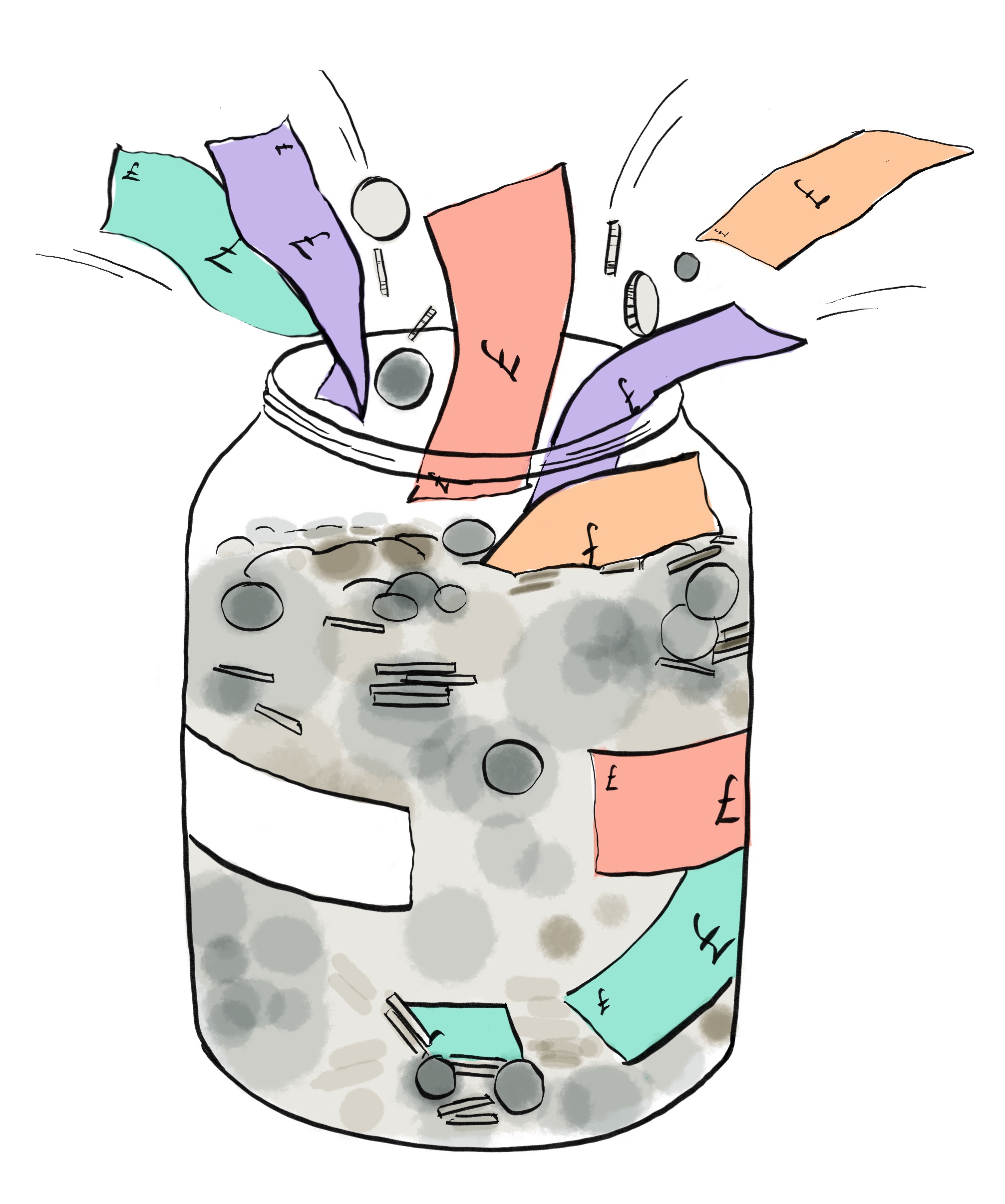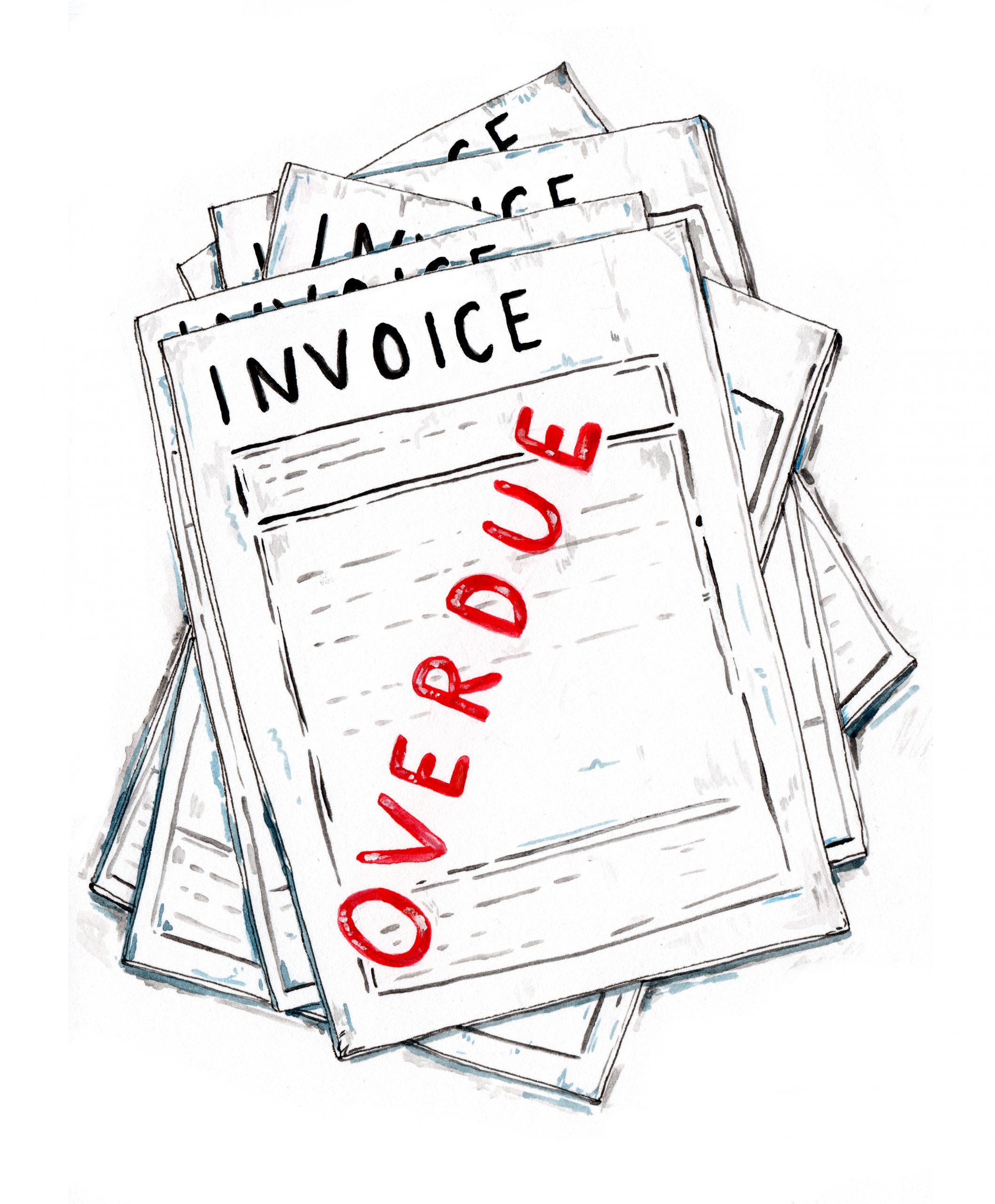Laura Whateley shares some tips {In partnership with Chip}
With the cost of living crisis looming, I’m dreading my new energy tariff which arrives any day soon, saving might not be at the forefront of your mind.
Certainly I am guilty of thinking about putting money aside as a ‘make hay while the sun shines’ kind of activity. But every financial adviser and debt charity I have spoken to says it is when money is tight that you need to focus on creating more of a cushion for yourself.
The most common reason people get into unmanageable debt is an expense that they didn’t see coming and have no savings to cover, which means they have to borrow at short notice, and usually at great expense, to fund it.
I also know I could probably save more than I think I can afford. Writing as an elderly millennial here, it’s amazing how quickly the years pass and a few extra pounds a week, plus compounding interest, adds up.
Here are a few tips on how to put more aside without noticing too much.

Pay yourself first
Don’t wait to see how much is left over at the end of the month before you decide how much you can afford to save.
Work backwards, how much do you want/ need to save each month? As soon as your salary lands, move that sum away to a separate account so you’re not tempted to touch it. If you need to get hold of it, it’s there, but adding a bit of friction always helps.
You can automate this with the app Chip’s new Payday Put Away feature, setting a custom amount that is moved into savings, from your current account, at the end of the month without you having to do anything.
Research by Chip found that those who put money aside on payday save 114 per cent more, an average of £168.47, a month (about £2,000 a year), and are also likely to keep money in their savings account for longer. Out of sight out of mind.
Chip also uses AI to analyse your current account and work out how much you can afford to save, moving small amounts of money every few days into an easy-access savings account, automatically (and the account pays a decent interest rate compared to most banks).
The idea is you don’t really feel it day to day, but it’s enough to make a difference over time. The average user puts away £3,000 a year (and if you sign up via this link and use the code PAYDAY10 you get £10 added to your account!).

Take on a savings challenge
On a constant quest to be a more organised person, I am a sucker for any productivity “hacks” and I love the book ‘Tiny Habits’ by the behavioural scientist BJ Fogg. The gist is: start tiny, make it as easy as possible for yourself, and before you know it, that thing you hate will be second nature. Then you can build it up.
E.g. if you want to not feel guilty at the dentist, start flossing just one tooth per evening.
In the same vein, if you want to save more money, begin with a few pennies every day.
Try the 365 day savings challenge: save £1 on a Monday, £2 on a Tuesday through to £7 on a Sunday. In 12 months you’ll have £1,500. Or the 1p challenge: 1p on day one, 2p on day 2 through to £3.65. It amounts to about £668 at the end of the year.
Deal with your debts
Interest rates on most loans and credit cards are many, many times higher than interest rates on savings.
So it makes sense that you’ll save more by using any spare cash on paying down your debts than you will squirrelling it in a cash account. There is some psychology involved here. If you have a lot of credit card debt that feels totally overwhelming to tackle, then having some savings, too, may help you sleep better.
But if the main issue is you’ve just shoved some shopping on a card and have forgotten about it, clearing minimum payments only, make clearing debt your focus. Take advantage of 0% balance and purchase credit cards, too.
When did you last switch broadband or car insurance? You’ll almost certainly be charged a loyalty penalty if you haven’t “shopped around”
Maximise all bonuses and tax-breaks on savings accounts
Interest rates on savings accounts might start creeping up from their abysmal lows, but it’ll take ages to earn anywhere near inflation. It’s still worth thinking about where to keep your different savings pots. Dividing savings up between short, medium and long term, and different goals like emergency fund, holidays, new kitchen, can help keep you motivated.
Look at regular savings accounts, current accounts that pay interest, and accounts from challenger banks and apps like Chip, which are often more generous than cash Isas from your more traditional high street banks.
Look at regular savings accounts and current accounts that pay interest, which are often more generous than cash Isas and easy-access accounts.
Make the most of any “free” money. Open a lifetime Isa if you’re saving to get on the housing ladder, you get an additional government bonus of up to £1,000 a year, for every £4,000 you save, towards your deposit. You can also use this money instead of a pension.
If you are employed you’ll probably have a pension with work. Tempting as it is to pause contributions or even come out of the scheme if you’re feeling the pinch, try to avoid it. You get really generous tax breaks and your employer pays in on top. Missing out on this is like turning down a pay rise.
Certainly I am guilty of thinking about putting money aside as a ‘make hay while the sun shines’ kind of activity. But every financial adviser and debt charity I have spoken to says it is when money is tight that you need to focus on creating more of a cushion for yourself.
Review all your bills
Sounds obvious, but it’s always tempting to leave it to another day. Look at what you’re paying out and whether you can cut back. When did you last switch broadband or car insurance? You’ll almost certainly be charged a loyalty penalty if you haven’t “shopped around”. What about your mobile phone? (SIM only with a handset bought on a 0% credit card will be cheaper than most other options).
If you have a mortgage, when does your deal end? Rates are rising and just 1 per cent increase adds about £70 a month onto a mortgage of £150,000. Don’t sit on your lender’s standard variable rate. I got super lucky with timing but managed to save £100 a month by switching when my fixed-rate deal ended this year.
Go through all those subscriptions that you signed up for and have since forgotten about.
And while you’re doing it, be conscious of a lifestyle creep. Whether it’s a pay rise or a bit more cash from a cheaper phone deal, try not to spend your mini windfall. I’ve pledged to save that extra £100 a month before I start to miss it.
This post was in collaboration with Chip, an amazing savings app (already used by 400,000 people) and if you sign up between 25th March and 22nd April using code PAYDAY 10, Chip will add an extra £10 to your savings pot!















